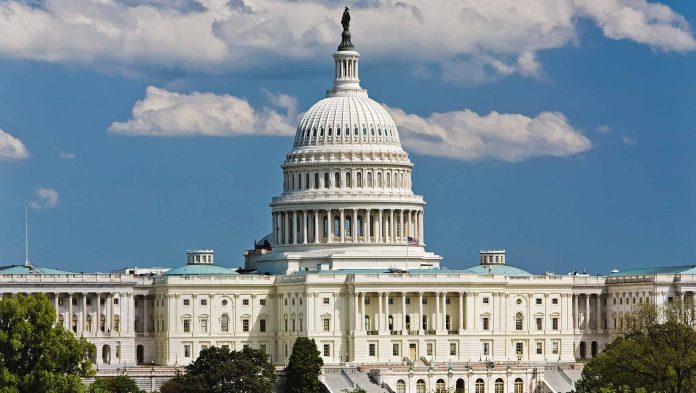What Is the Purpose of Government
The purpose of government is to organize and manage a society to ensure order, provide public services, protect the rights and freedoms of individuals, and promote the general welfare of its citizens. Here are some key purposes of government:
- Maintaining Order and Security: Governments establish laws and regulations to maintain public order, prevent crime, and ensure the safety and security of citizens.
- Protecting Rights and Liberties: Governments protect individual rights and liberties, such as freedom of speech, freedom of religion, and the right to privacy, often enshrined in a constitution or legal framework.
- Providing Public Services: Governments provide essential services that individuals cannot efficiently supply on their own, such as education, healthcare, infrastructure, and public transportation. Read about What is Limited Government
- Promoting Economic Stability and Growth: Governments create economic policies, regulate markets, and provide economic infrastructure to promote stability and growth, ensuring a fair and functioning economy.

- Ensuring Justice: Governments establish and maintain a legal system to adjudicate disputes, enforce laws, and uphold justice, ensuring that citizens are treated fairly and equitably.
- Defending the Nation: Governments are responsible for national defense, protecting the country from external threats through military and diplomatic means.
- Promoting General Welfare: Governments work to improve the quality of life for their citizens, addressing issues such as poverty, health, and environmental protection.
- Representing Citizens: In democratic systems, governments represent the will of the people, making decisions based on the interests and desires of the electorate. Don’t Miss to Check Out Our Website: Webs Universe
Overall, the purpose of government is to create a structured environment where society can thrive, balancing individual freedoms with the needs of the community.
Historical Perspectives on Government
The concept of government has evolved significantly over millennia. In ancient civilizations such as Mesopotamia, Egypt, and Greece, governments were established to maintain order and implement the will of the gods as interpreted by priests and rulers. During the Enlightenment, philosophers like John Locke, Thomas Hobbes, and Jean-Jacques Rousseau introduced ideas about social contracts and the rights of individuals, laying the groundwork for modern democratic governance.
The Fundamental Purposes of Government
Governments are established to fulfill several fundamental purposes essential for the functioning and well-being of society. These purposes can be broadly categorized as maintaining order, providing security, ensuring justice, and promoting public welfare.
Maintaining Order
One of the primary functions of government is to maintain order within a society. This involves the creation and enforcement of laws that regulate behavior, resolve disputes, and ensure that individuals and groups can coexist peacefully. Law enforcement agencies, judicial systems, and regulatory bodies are all instrumental in upholding order.
For instance, the United States employs a robust judicial system that includes various levels of courts to handle everything from minor disputes to major criminal cases. Similarly, many countries have law enforcement agencies like the police, which are tasked with maintaining public order and safety.
Providing Security
Security is another crucial purpose of government. This encompasses both national defense against external threats and internal security measures to protect citizens from crime and violence. Governments allocate significant resources to military forces, intelligence agencies, and border protection to safeguard their sovereignty and citizens.
On the international stage, governments engage in diplomacy and form alliances to enhance their security. Organizations like the United Nations play a role in mediating conflicts and promoting global peace and security.
Ensuring Justice
Ensuring justice is a cornerstone of any government. This involves establishing a legal framework that protects human rights, guarantees fair treatment under the law, and provides mechanisms for addressing grievances. Courts and legal institutions work to uphold justice by interpreting laws and delivering verdicts.
Human rights protection is particularly vital, with international agreements like the Universal Declaration of Human Rights setting standards that governments are expected to uphold. Fair judicial processes ensure that justice is not only done but is seen to be done, fostering public trust in the legal system.
Promoting Public Welfare
Governments also play a key role in promoting the public welfare by providing essential services and ensuring a decent quality of life for their citizens. This includes healthcare, education, social services, and welfare programs.
Healthcare systems, whether publicly funded like the NHS in the UK or a mix of public and private providers like in the USA, aim to ensure that citizens have access to medical care. Education policies and public schools are designed to provide learning opportunities for all, promoting literacy and skills development.
Economic Management
Effective economic management is vital for the stability and growth of a country. Governments use fiscal policies, such as taxation and government spending, to influence the economy. They aim to foster economic stability, reduce unemployment, and encourage sustainable growth.
Regulation of markets ensures that businesses operate fairly and transparently, protecting consumers and promoting competition. During economic crises, governments may intervene with stimulus packages to revive economic activity and support those affected.
Infrastructure Development
Governments are responsible for developing and maintaining infrastructure that supports economic activities and improves the quality of life. This includes transportation systems like roads, railways, and airports; public utilities such as water and electricity; and advancements in technology and communication networks.
Investment in infrastructure not only facilitates commerce but also enhances connectivity and accessibility, contributing to the overall development of a nation.
Environmental Protection
In recent decades, environmental protection has become a significant focus for governments worldwide. Efforts to combat climate change, promote sustainability, and conserve natural resources are essential for the long-term health of the planet.
Governments implement policies to reduce carbon emissions, protect endangered species, and manage natural resources responsibly. International agreements like the Paris Agreement highlight the collective effort required to address environmental challenges.
Civic Participation and Governance
Democratic processes allow citizens to participate in governance through voting, public consultations, and civic engagement. Governments are expected to be transparent and accountable, ensuring that their actions reflect the will and needs of the people.
Citizen engagement is fostered through various platforms, from local town halls to national referendums. Transparency measures, such as freedom of information laws, enable citizens to scrutinize government activities and hold officials accountable.
Balancing Individual Rights and Collective Good
A critical challenge for governments is balancing individual rights with the collective good. This often involves navigating issues like freedom versus security and privacy versus surveillance. Social contracts, as theorized by Enlightenment thinkers, underpin this balance by outlining the rights and responsibilities of both citizens and the state.
Modern debates on data privacy, for instance, reflect this ongoing challenge as governments seek to protect national security while respecting individual freedoms.
Challenges Facing Modern Governments
Governments today face numerous challenges that require adaptive strategies and innovative solutions. Globalization has interconnected economies and societies, making international cooperation essential. Technological advancements bring both opportunities and threats, necessitating regulation and forward-thinking policies.
Social and economic inequalities pose significant challenges, demanding comprehensive approaches to ensure inclusive growth and social justice. Addressing these issues requires governments to be responsive and resilient in the face of change.
Case Studies
Examining different forms of government provides valuable insights into their functions and effectiveness. Democracies like those in Western Europe and North America emphasize citizen participation and individual freedoms. In contrast, authoritarian regimes prioritize stability and control, often at the expense of personal liberties.
Success stories, such as the economic rise of South Korea, demonstrate how effective governance can drive development. Conversely, failures like the economic collapse of Venezuela highlight the consequences of mismanagement and corruption.
Conclusion
In conclusion, the purpose of government is multifaceted and dynamic, encompassing the maintenance of order, provision of security, ensuring justice, and promotion of public welfare. Governments must adapt to changing circumstances and address contemporary challenges to fulfill their roles effectively. Understanding these purposes helps citizens appreciate the complexities of governance and the importance of active civic participation.
FAQs
- What are the different types of government?
- Governments can take various forms, including democracies, republics, monarchies, authoritarian regimes, and totalitarian states. Each type has distinct characteristics regarding citizen participation, power distribution, and governance practices.
- How do governments impact daily life?
- Governments influence daily life through laws and regulations, public services like healthcare and education, infrastructure development, economic policies, and social programs. Their decisions affect everything from the quality of roads to the safety of communities.
- What role do citizens play in government?
- Citizens play a crucial role in democratic governments by voting, participating in public discussions, and holding officials accountable. Active civic engagement ensures that governments remain responsive to the needs and interests of the people.
- Can governments adapt to changing times?
- Yes, governments can adapt through policy reforms, technological innovations, and responsive governance practices. Adapting to changing times is essential for addressing new challenges and ensuring long-term stability and development.
- Why is government transparency important?
- Transparency is vital for building trust between governments and citizens. It ensures accountability, reduces corruption, and enables informed public participation. Transparent governments are more likely to implement policies that reflect the will and needs of the people.











